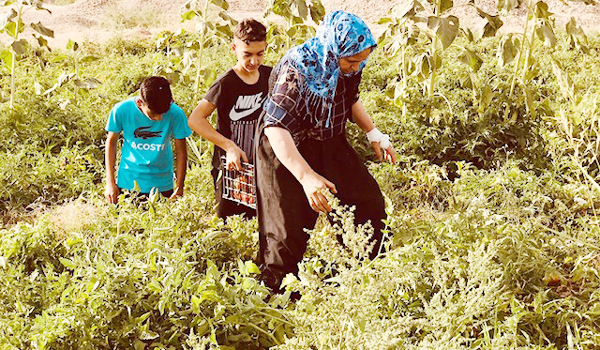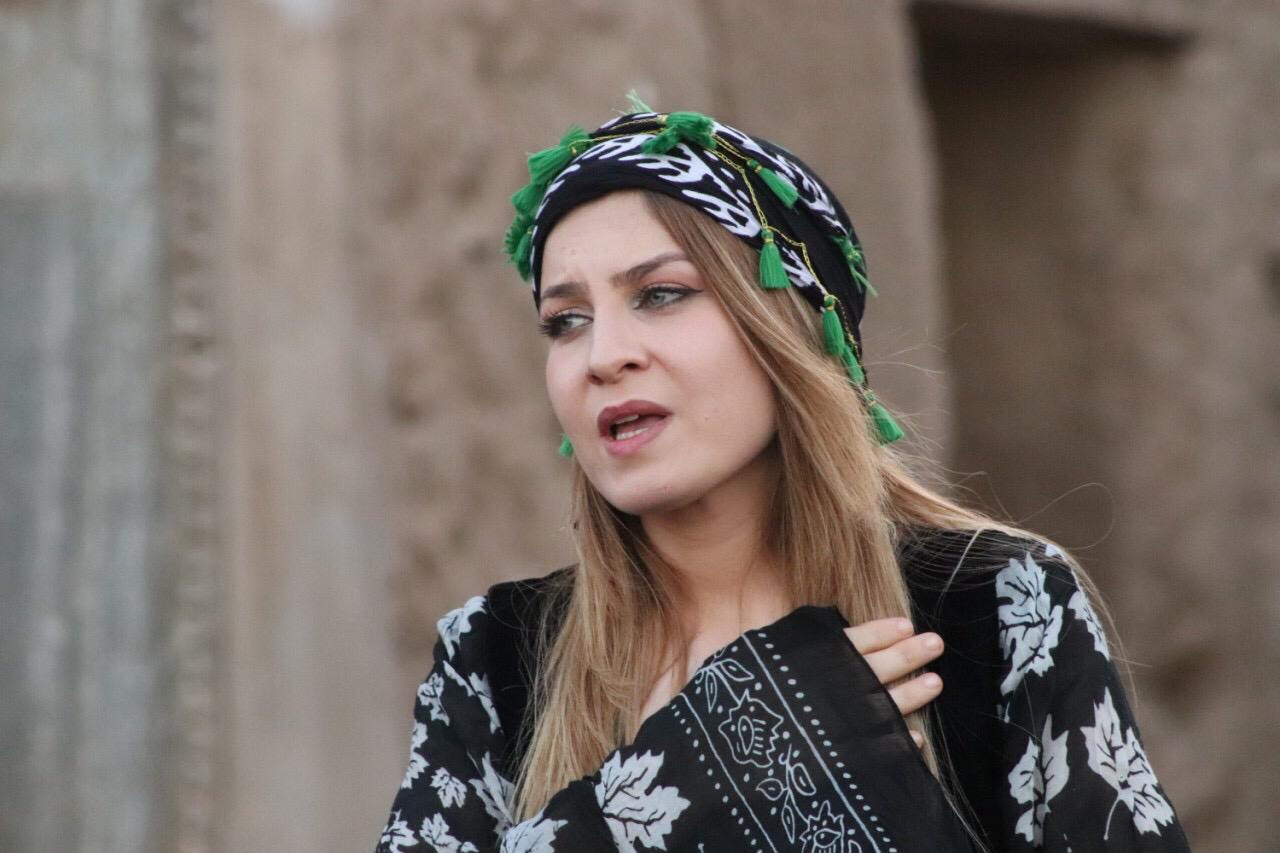Iraqi minorities have tried many peaceful methods to protest and show the level of marginalization they have been subjected to. For a Kaka’i woman is singing perhaps the last resort to convey what the religious minority are going through nowadays in Iraq.
“The Cry of the Kaka’is” is the title of the song Rubar Rashid Kaka’i sings with a winsome voice and a melancholic melody in Kurdish Macho dialect, which the Kaka’i speak.
Rubar’s song is a lamentation for victims of extremist groups like ISIS, its predecessors and other extremists among the Kaka’i minority in the last 17 years.
The Kakai’s (or Kakaiyees) are among those who follow Yarsanism, who also call themselves Ahli Haq, which is a largely secretive belief due to persecution. The faith has elements of Islam and some ancient religions like Zoroastrianism. The majority of those who practice Yarsanism are ethnic Kurds who live in Iraq and Iran.
I wanted to convey the lonesome plight of the Kakai’s through this song
“A lot of disasters happened [to us], and nobody came to help us. I wanted to convey the lonesome plight of the Kakai’s through this song,” said Rubar.
Her song has had thousands of views on social media platforms within days and has gained some popularity.
Prior to the release of the video clip, KirkukNow published a short video report on the song, in which Rubar talks about its purpose.
The report and the video of the song had more than 32,000 views on the Facebook of KirkukNow.
An individual named Muhamad Nuri commented under the post: “The Kaka’is in Daquq have always been peaceful and friendly, and they’ve had a big role in securing the town.”
The Kaka’is are viewed as a peaceful community, yet they have been the target of many violent attacks. Only in the last few months (since the start of the COVID-19 outbreak) more than 16 members of the community have been killed. Security forces are mostly occupied with implementing the measures taken to halt the outbreak, and the lax in security is exploited by extremist groups.
The Kaka’is are constantly being martyred by the terrorist groups, and no Iraqi entity is doing enough to protect us
33-year-old Rubar told KirkukNow: “The Kaka’is are constantly being martyred by the terrorist groups, and no Iraqi entity is doing enough to protect us.”
“Since 2003, the Kaka’is are being martyred, their houses burned, our youths kidnapped, our sacred places blown up, and our graveyards desecrated.”
Her song was broadcast on many Iraqi outlets and has attracted some international attention as well.
The US Consulate General in Erbil has posted the song on their Facebook page and wrote: “Although ISIS and other extremist groups target minorities and religious diversity in IKR [Kurdistan Region of Iraq] and Iraq, principles of tolerance and coexistence remain.”
The song has so far 42,000 views on the US Consulate page.
Rubar says that the Kaka’is have been abandoned during all events, “that’s why we convey the plight of the lonesome Kaka’is to the world, so that everyone knows what we go through in our own land.”
Rubar is the first woman to sing in Macho dialect, which is spoken by the Kaka’is exclusively.
“We try to keep that dialect alive.”
The video clip of the song was filmed at the historical castle in Kirkuk and includes several scenes of tragic events that occurred in the Kaka’i regions.
Rubar thanked KirkukNow for providing the image material of those events.
For more than two years, KirkukNow has been working on an effort to highlight the plight of the Kaka’is through our reports and video footage. And currently, in collaboration with Minority Rights Group International, we are working on putting our reporting on the community and what they go through in a collection that will be published in English and Arabic at the end of this year.
The idea for the song was inspired by the attacks the Kaka’is suffered recently.
“My brother-in-law, master Luqman Rashid Kaka’i, came up with the idea. My husband has encouraged me a lot, and told me that I should break that taboo [of Kaka’i women singing] and record the song. I love to sing since my childhood.”
Rubar is married to a journalist. They have three children and reside in Kirkuk.
On Rubar’s YouTube channel, the song’s video clip has been viewed more than 5000 times so far. Most of the comments are encouragements and expressions of support for the Kaka’i community.

Kikruk – a woman and her two children working on their field in a Kaka’i region in Daquq – Photo by Muhammad Almas
Muhammad Jaleel, a prominent member of a Sunni Islamist political party in Kirkuk, wrote in a comment: “The Kaka’is in Kirkuk are a symbol of peaceful coexistence, of loyalty and dignified manners. But unfortunately, they have become the victim of wrong politics. They are subjected to murder, displacement and misery.”
After preparing the lyrics, the melody and the rest of the song components, Rubar and her fellow artists wanted to film the clip at the Ali-Sara village (a Kaka’i village in Kirkuk’s Daquq district), but they weren’t allowed.
We had submitted several formal requests to be allowed to film the clip at the graveyard of that village, but the security forces didn’t allow us
“We had submitted several formal requests to be allowed to film the clip at the graveyard of that village, but the security forces didn’t allow us. I want to know why. Our ancestors are buried at that graveyard. Is that how the Iraqi government want to treat us Kaka’is?
The size of the Kaka’i community in Iraq is estimated to be about 100,000, but their religion is not recognized in the Iraqi constitution.
Rubar has more ambitions now. After seeing the reactions to her first song, she dreams of using art to make the world aware of the plight of her community.
“The good thing is that the song was widely shared among the Kaka’i community and the country too, because it speaks of the marginalization of the Kaka’I,” said Rubar.





